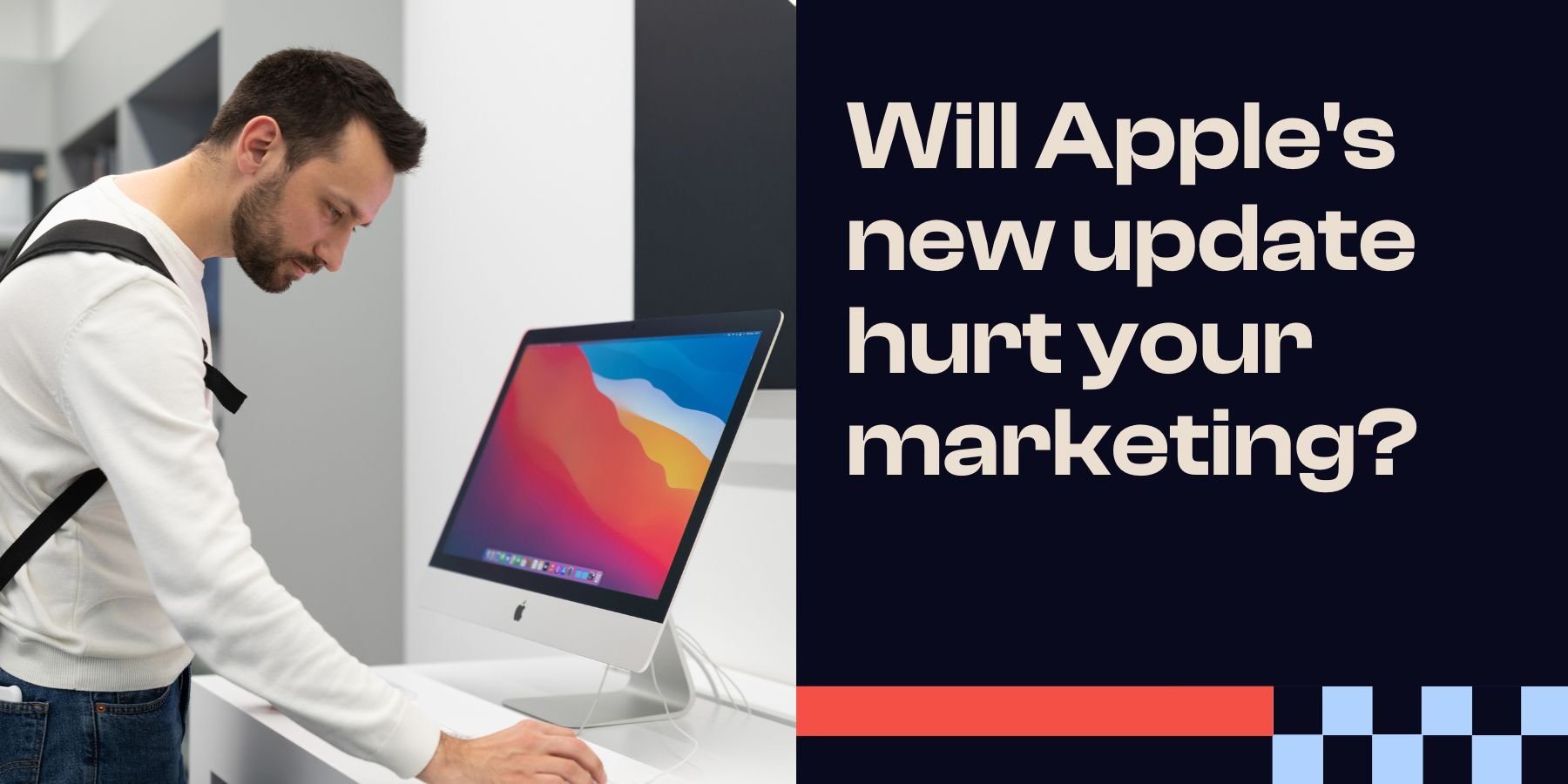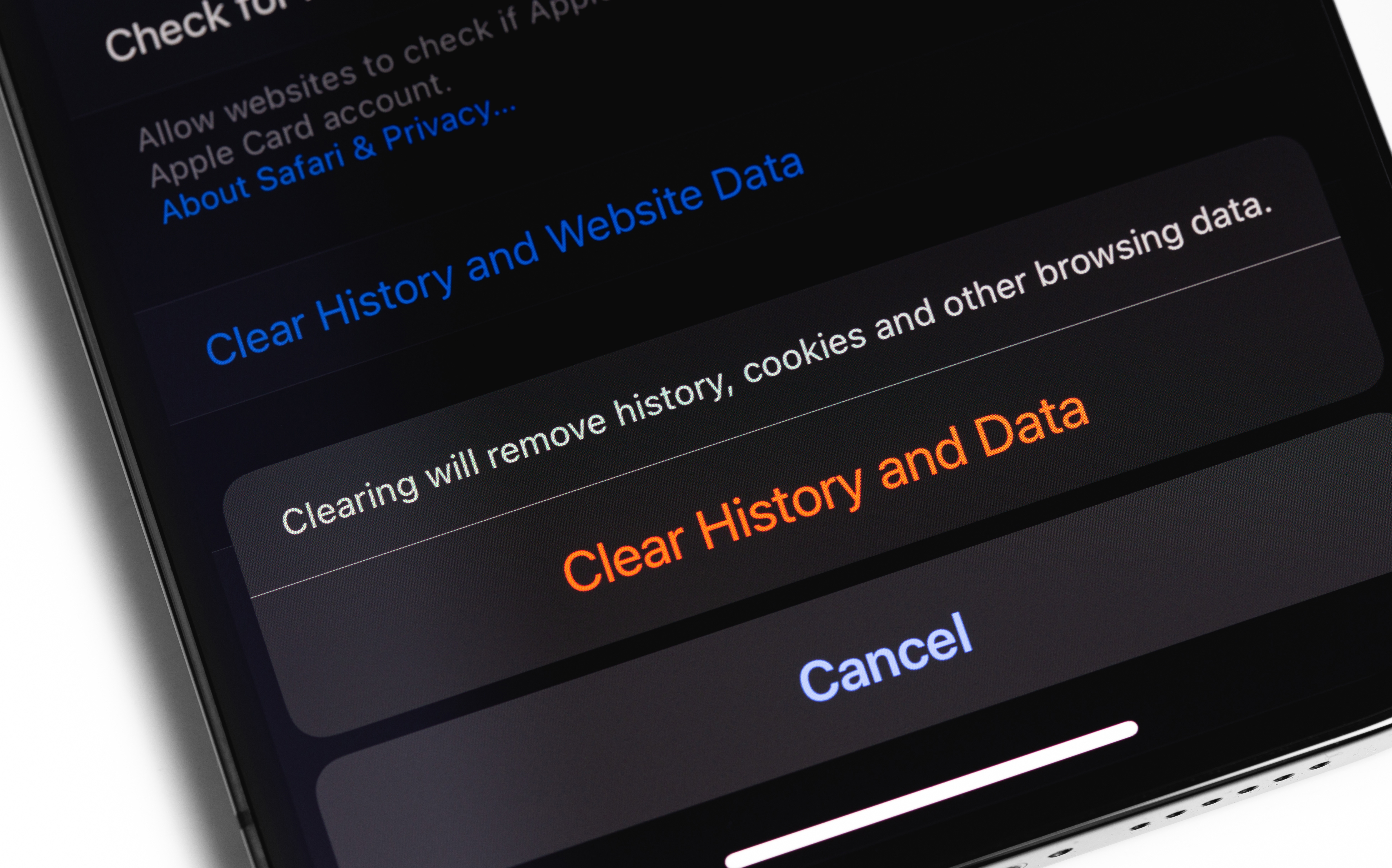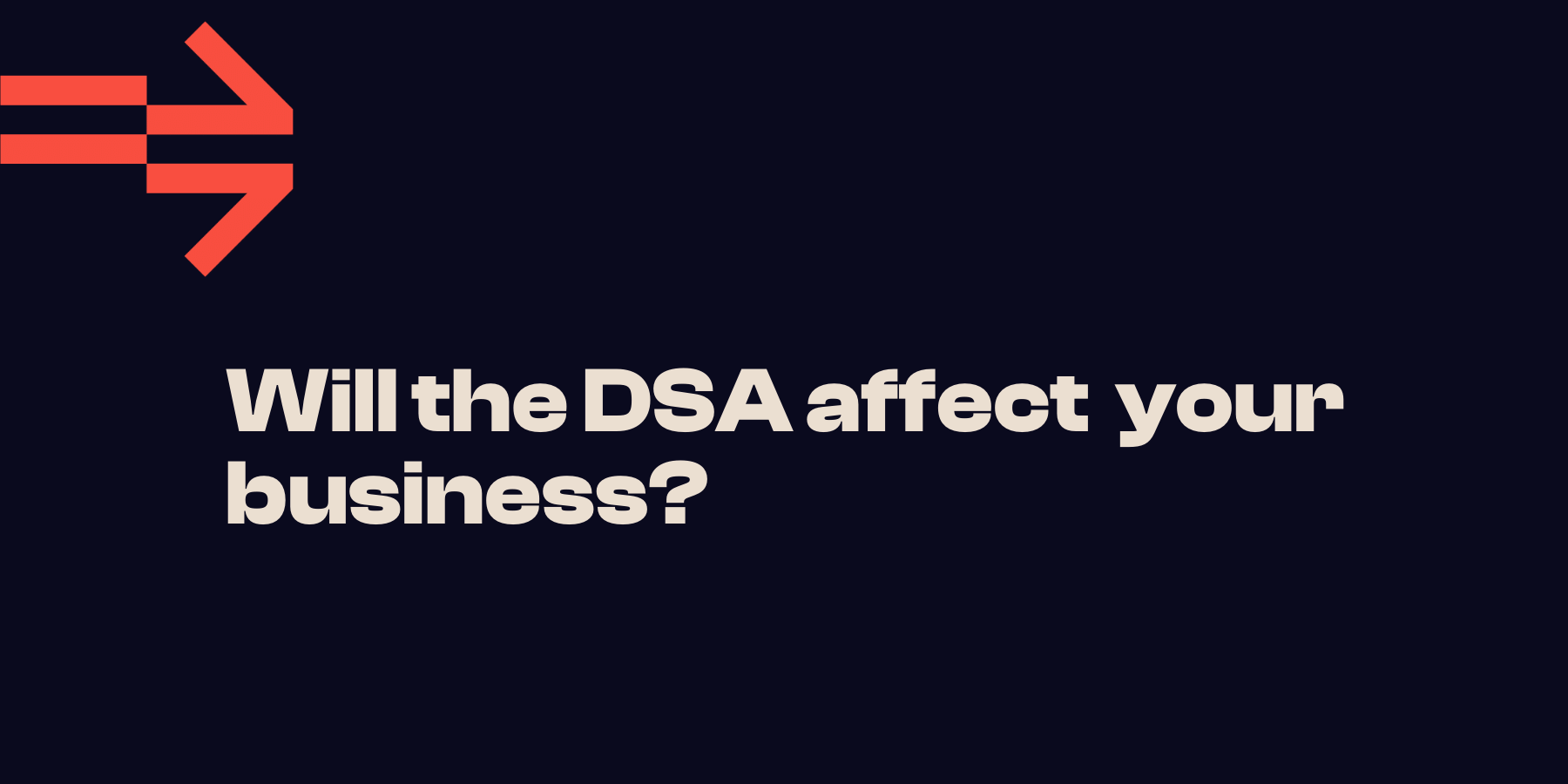The Apple vs Facebook data privacy showdown and you!

Last updated: 01 April 2021
In case you’ve missed it, two Goliaths of the digital words are duking it out over Apple’s data privacy changes being rolled out in their iOS 14 update.
Apple claims to be protecting their users' privacy and data for a better online experience. Facebook claims Apple are deliberately causing “unnecessary disruption to our customers' businesses” by making it harder to deliver personalised ads to relevant markets based on data sharing restrictions.
So do either of these global entities have our best interest at heart, or are we the pawns in a giant power move to increase revenue streams?
Big data and privacy issues
The internet is filled with conflicting interests. On one hand, we want to know where our personal information and data is ending up. On the other, we don’t want our newsfeed and search results cluttered up with crap we couldn’t care less about!
There’s a trade-off between allowing big data analytics to track our online activity and give us a more personalised online experience, and protecting sensitive information from falling into the wrong hands.
And it’s this trade-off that’s currently creating friction between tech titan, Apple, and social network behemoth, Facebook.
Apple’s argument
In 2020, Apple announced that the Identifier For Advertisers (IDFA) would become opt-in when people download an app from the App Store. The IDFA is a unique ID code for each iOS device, which can be used to track and identify devices. This can help advertises track the effectiveness of advertising campaigns and deliver content tailored to the interests of the user.
Apple devices have given users the option to opt out of this using a “limit ad tracking” (LAT) feature. However, the iOS 14 data updates will now make tracking opt-in instead. Apps will have to specifically request user’s permission to track them across other apps and sites.
The update will also create a fresh MAC (media access control) address each time an Apple device connects to the internet. This also makes it more difficult for third parties to follow when and where devices are logging online.
Apple claims these changes are about giving consumers greater control over their data and real choice when it comes to granting access to user data.
"We believe that this is a simple matter of standing up for our users. Users should know when their data is being collected and shared across other apps and websites — and they should have the choice to allow that or not."
Furthermore, Apple CEO, Tim Cook, points out that Facebook can still track users. They simply need to get permission from Facebook users using the iOS platform first.
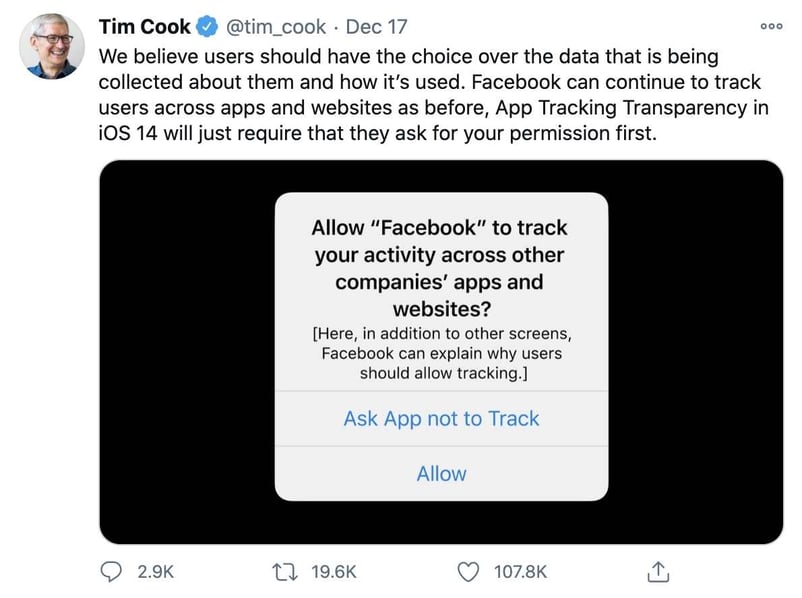
Sounds reasonable, so what does Facebook have to say?
Facebook’s argument
Facebook is claiming to be the champion of SMEs, who it claims will lose “over 60% in their sales for every dollar they spend” on targeted advertising campaigns through the apps in the Facebook family. This includes Facebook, Messenger, Instagram and WhatsApp, as well as Audience Network, an off-Facebook, in-app advertising network.
They argue that if Apple allows users to forego tracking, it will force businesses to explore other revenue-generation options for access to their apps, such as subscriptions and in-app payments. Which, according to Facebook, means that if people can’t access free apps anymore (like Facebook’s social media app) small businesses may have to exit the market as it will no longer be possible for them to offer free access to their apps, or to advertise effectively across other free apps.
In the full-page ads they took out in several major newspapers, they said:
If the entrepreneurs and creators who run these businesses can’t rely on efficient and effective advertising to make money, they’ll be forced to turn to other ways to stay afloat: things like charging people for a subscription or in-app payments.
Paying for content may be fine for the well off, but many people just don’t have room in their budget for these fees.
It would seem Facebook is equally invested in the rights and equity of the little guy, right?
What does this mean for business owners?
Let’s assume Facebook is correct and you stand to lose 60% in sales for each dollar you spend on in-app advertising. This is only an anticipated loss on one marketing avenue and only affects those using Apple devices. In Australia, that accounts for around 42% of the mobile market, according to Mobileapps.com.
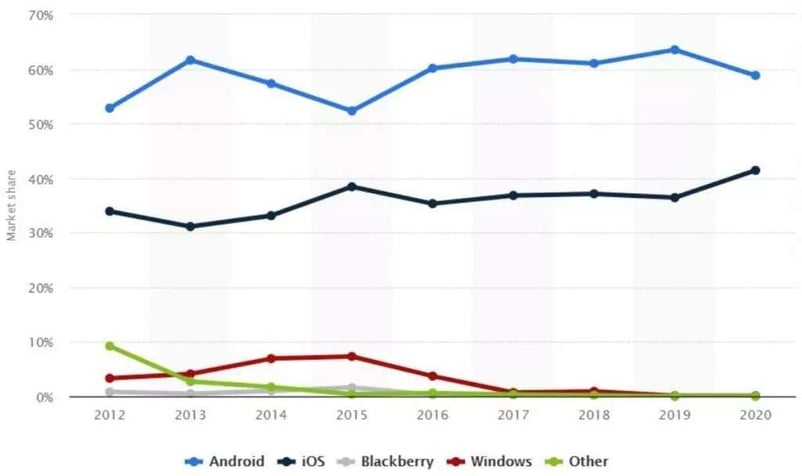
However, if the ability to serve targeted advertising to iOS users is limited, it can still lead to less efficient advertising for small businesses who rely on the Facebook suit of apps as part of their marketing mix. A loss of data can impact metrics around engagement, conversions and reach, making it harder to track the effectiveness of campaigns.
To see the potential impact this may have on your business, head to your Google Analytics dashboard and visit the Devices Report (Audience > Mobile > Devices). This will show you the percentage of your traffic that comes from iOS devices and will be impacted by the opt-in changes.
Smart businesses should also have a range of marketing avenues to capture the attention of their target market, so a drop of conversions in this avenue doesn't automatically translate to a 60% drop in total sales revenue. If only 20% of your traffic comes through iOS devices and 60% opt-out, that is 12% of total users who will see less personalised advertising through apps.
What can you do?
The digital landscape is bound to keep changing to help protect people’s personal data, so business owners need to be flexible and keep their marketing strategies diversified. Here are some things you can do to limit any potential revenue loss from Apple’s iOS 14 update.
Capture customer data
Build a database with your customer’s email or phone number for more direct communication. This can be done when people purchase something from you, subscribe to a newsletter, download a resource from you, or participate in a competition.
This gives you the option to communicate directly with people willing to opt-in to your messaging, even if they opt-out of tracking.
Encourage referral traffic
Word of mouth is still a powerful advertising tool. Consider incentives for existing customers to share word of your products and services to new audiences, or encourage them to leave reviews on reputable sites.
Discover alternate channels
As part of your purchase process or contact form, ask people how they found you. This can give you insight into which marketing strategies are worth developing to help new customers discover your business.
Familiarise yourself with privacy policies
You can find more information about Apple and Facebook’s data privacy policies here to understand how both organisations use and share your data. This may help you communicate the changes to your audience so they can make a more informed decision.
Do you use Facebook ads?
If you’re unsure how your business might be affected by these changes, chat to the team at Refuel Creative. We deliver a range of digital advertising strategies and can advise on the best way to protect your online advertising budget.

